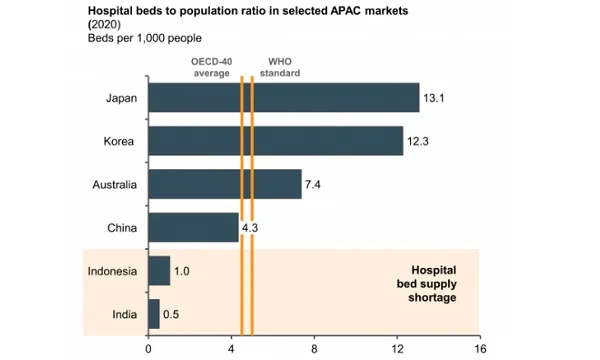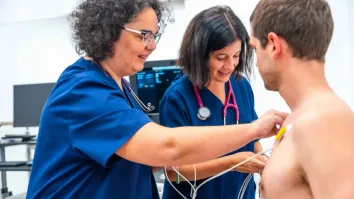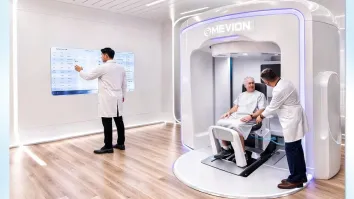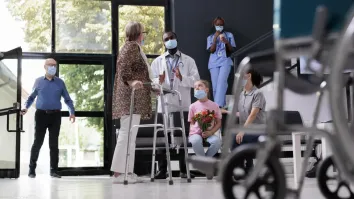
Asia Pacific to ramp up investment on healthcare capacity
Even markets with better capacity faced issues such as manpower shortage.
Asia Pacific markets are expected to focus on investments to ramp up healthcare capacity in the longer term, particularly for healthcare systems that have faced severe undersupply, according to a report from L.E.K. Consulting.
The pandemic has highlighted critical shortage of hospital beds and other healthcare infrastructure in several APAC countries, the report noted. In India, hospital bed ratio is far below the WHO standard, as normal bed occupancy is around 65%. This was exacerbated by overcrowding during the pandemic.
Similarly, Indonesia faced a lack of hospital beds, isolation wards, ventilators and doctors.
Even for markets with better healthcare capacity, the report found that the pandemic highlighted specific issues, making them likely to put resources into contingency plans to meet possible future surges in demand. For instance, Japan saw a crippling manpower shortage in hospitals in mid-April despite its high hospital bed to population ratio.
"Markets could likely consider other contingency measures, such as converting facilities for medical purposes and increasing public-private hospital partnerships, which will increase surge capacity," the report stated.
APAC may also look into building self-sufficiency for medicines and devices in the longer term. Governments could introduce policies to hike local production and expand national stockpiles in a move to better ensure self-sufficiency.
Already, India is offering incentives for local manufacturing of drugs, where it previously imported up to 65% of APIs. South Korea is also seeking to become self-sufficient in essential pharma products by 2029, especially for those required for contagious diseases.
For the same reason, markets could also build infrastructure such as manufacturing facilities and storage facilities for inventory. For instance, India is building medical device parks to increase medical device production.
However, this is still unlikely to eliminate global trade of drugs and devices. "Markets will still rely on others that have specialised in certain products, but there will be closer examination of supplies and more built-in safeguards to bolster supply chain security," the report added.



















 Advertise
Advertise






